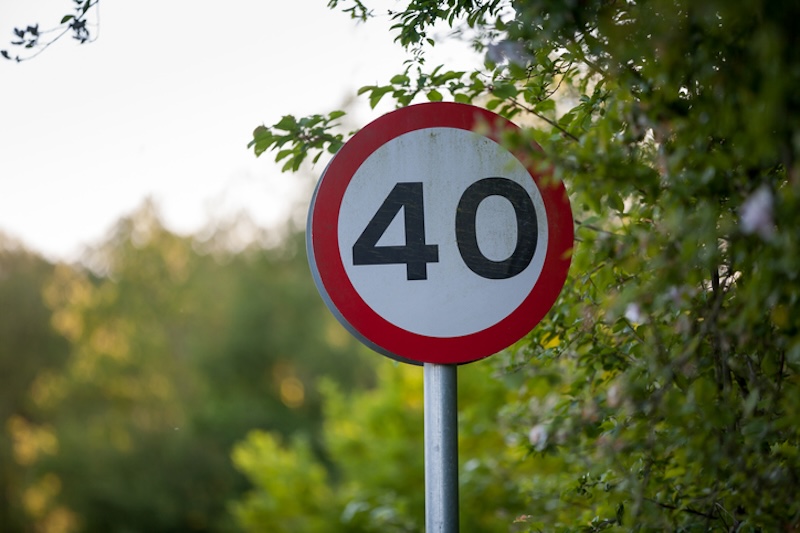Car tax changes 2019 explained: what you need to know

Only two things in life are certain: death and car tax.
As we’re now firmly in April, another set of changes to car tax requirements and regulations have just hit.
But what does the latest mean for you? Here’s our guide to everything you need to know about car tax in 2019.
What is car tax?
The Vehicle Excise Duty (VED), also know as car tax, is the cost paid to the government in order to legally drive in the UK.
Until 2014, a vehicle’s car tax used to be displayed on a small paper disc in the windscreen, but although road tax isn’t quite so visible these days you still have to pay.
It’s estimated that VED generates around £5 billion in revenue for the government, which helps fund upgrades and maintenance of UK road network.
The amount of car tax required for each vehicle depends on its age and emissions levels.
It’s important to be aware of what to expect if you’re considering buying a new or second-hand car.
VED bands and car tax rates for cars registered on or after 1st April 2017
| CO2 Emissions g/km | Standard Rate (Year 2 onwards) |
First Year Rate | First Year Rate Diesel Vehicles* |
| 0 | £0 | £0 | £0 |
| 1-50 | £140 | £10 | £25 |
| 51-75 | £140 | £25 | £105 |
| 76-90 | £140 | £105 | £125 |
| 91-100 | £140 | £125 | £145 |
| 101-110 | £140 | £145 | £165 |
| 111-130 | £140 | £165 | £205 |
| 131-150 | £140 | £205 | £515 |
| 151-170 | £140 | £515 | £830 |
| 171-190 | £140 | £830 | £1,240 |
| 191-225 | £140 | £1,240 | £1,760 |
| 226-255 | £140 | £1,760 | £2,070 |
| Over 255 | £140 | £2,070 | £2,070 |
VED band and rates for used cars registered on or after 1st March 2001 but before 1st April 2017
| Tax Band | CO2 Emissions g/km | Standard Rate (2017-2018) | Standard Rate (2018 – 2019) |
| A | 0-100 | £0 | £0 |
| B | 101-110 | £20 | £20 |
| C | 111-120 | £30 | £30 |
| D | 121-130 | £115 | £120 |
| E | 131-140 | £135 | £140 |
| F | 141-150 | £150 | £155 |
| G | 151-165 | £190 | £195 |
| H | 166-175 | £220 | £230 |
| I | 176-185 | £240 | £250 |
| J | 186-200 | £280 | £290 |
| K | 201-225 | £305 | £315 |
| L | 226-255 | £520 | £540 |
| M | Over 255 | £535 | £555 |
VED rates for cars registered on or before 28th February 2001
If your car or van was registered on or before 28th February 2001, it will be taxed based on engine size:
2019/20 tax rates for cars & vans registered prior to 1st March 2001
| Engine size | Tax rate (with change on 2018/19 rate) |
| 1549cc or under | £160 (up £5)* |
| Over 1549cc | £265 (up £10)* |
*Rates shown are if paid by annual direct debit.
What’s changing for VED in 2019?
Although the core structure of the road tax system has remained unchanged since 2017, inflation means that from 1st April 2019 car tax has gone up. Most drivers of new vehicles will pay more VED depending on their level of CO2 emissions.
VED is linked to the Retail Price Index (RPI) which means for the majority, the annual flat rate of road tax will jump up £5 to £145.
For vehicles registered between 1st March 2011 and 31st March 2017, car tax had been frozen, but since 1st April 2019 these rates have also been subject to inflationary increases.
This means if you own an older, more polluting vehicle you could be hit by a £15 hike.
There’s a £10 discount for owners of alternatively-fuelled vehicles (AFVs) (including hybrids and plug-in hybrids (PHEVs), meaning an annual charge of £135.
Regardless of how they’re powered, cars worth £40,000 or more are subject to a further £320 annual charge (£10 increase) that runs for five years, kicking in after the first year.
After this, the charge reverts back to the annual flat rate of £145 (or £135 for AFVs).
What is RDE?
 New cars registered after 1st April 2018 have been tested against the Real Driving Emissions (RDE) standards.
New cars registered after 1st April 2018 have been tested against the Real Driving Emissions (RDE) standards.
RDE testing is rigorous and sees cars analysed on urban and rural roads testing their exhaust systems. They’re also assessed on motorways for 90 minutes.
Britain is the first country in the world to introduce real-life emissions testing on roads.
Any vehicles that don’t meet the latest Euro 6 emissions standards will see a rise in road tax.
Due to stricter tax impositions on diesel vehicles, if you buy a diesel car that doesn’t comply with the RDE Act 2 emission testing, you could end up paying up to £500 a year to tax your vehicle.
Are all vehicles subject to road tax?
No. Since 2017, you have been able to qualify for road tax exemption by driving a zero emissions, pure electric car. AFVs, which include hybrids and plug-in hyrbrds are not subject to the same exemptions.
Some low-emission vehicles registered before 1st April 2017 also qualify for VED exemption if they emit up to 100g/km of CO2.
Regardless of whether your vehicle is exempt or not you’ll still need to apply for VED even if you don’t have anything to pay. Failing to do this will see you hit with a fine.
Do I have to pay car tax?
In short, yes. Unless you own a car that meets one of the above exemptions, your vehicle will be subject to road tax. Failing to pay the required tax will see you fined and could lead to your vehicle being crushed.
If you have no intention of driving your car on the road, you can declare your car SORN.
Meaning you can avoid paying road tax if you contact the DVLA and register your vehicle as SORN.
If you don’t you could get slapped with a fine for failing to tax your vehicle.
Now that you’re more than likely going to have to be forking out a little extra to pay for this years car tax, why not have a look and see if you can help recoup your losses by cutting down your car running costs? We’ve got some great ideas to help make the most out of your cash.


